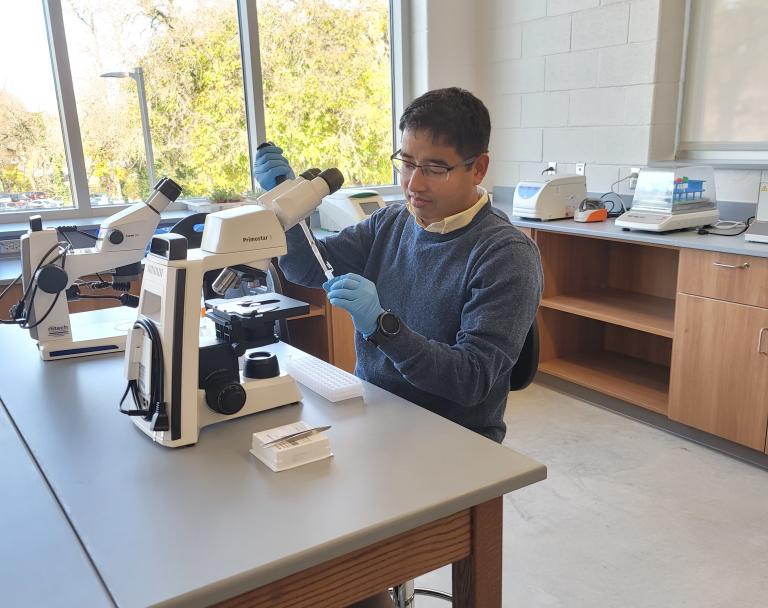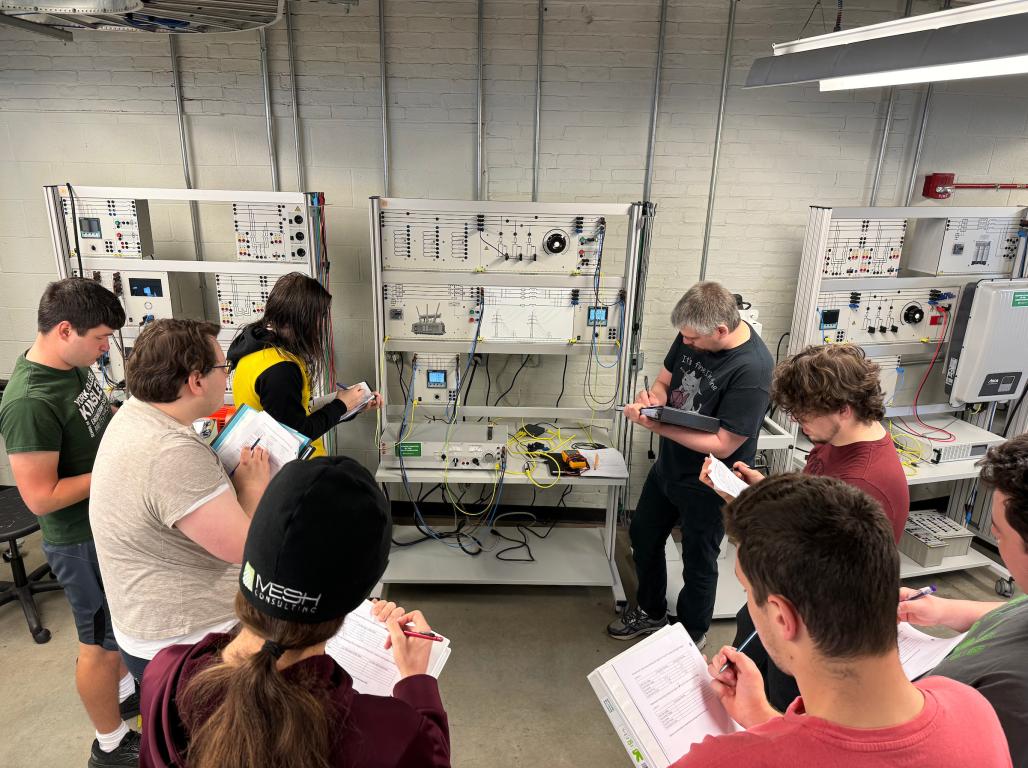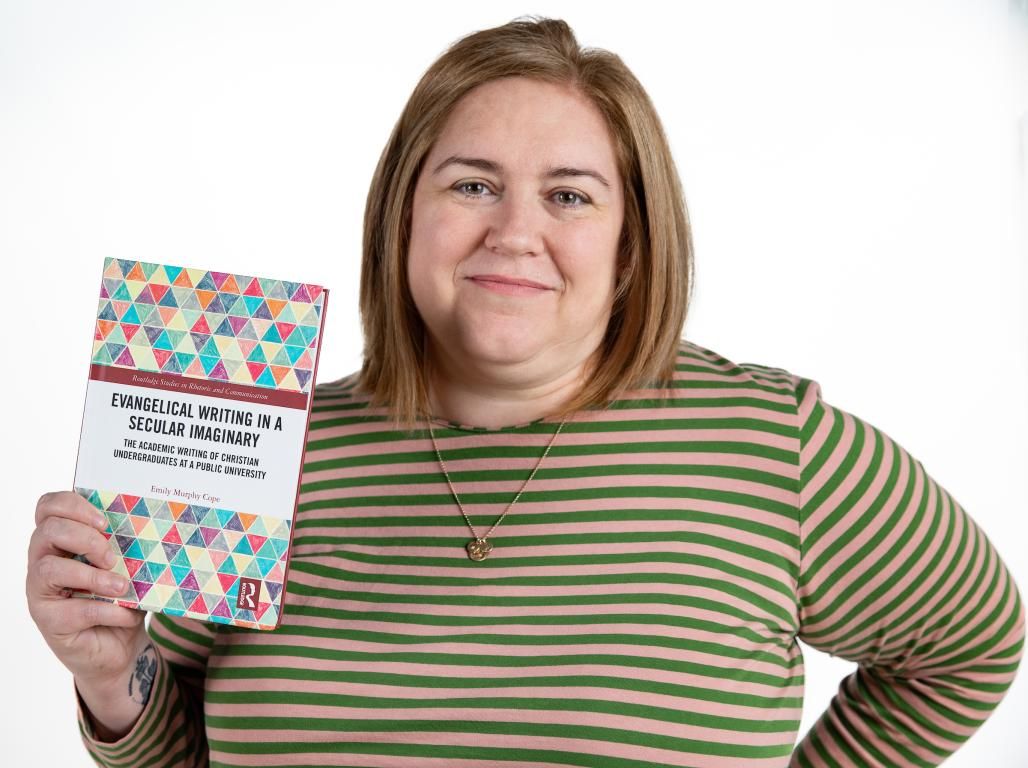The Assistant Professor of Environmental Horticulture is bringing his doctoral research on genetically modified organisms to York College of Pennsylvania.
The Assistant Professor of Environmental Horticulture is bringing his doctoral research on genetically modified organisms to York College of Pennsylvania.
Nestled in the heart of a Nepalese farming community, young Tej Man Tamang developed a deep connection with the land that would shape his future. His childhood experiences with agriculture would lead him to become a trailblazer in the field of plant genome research.
“I belonged to a family whose livelihood depends on agriculture,” he says. “I came from Nepal, where we had to do traditional farming, and our livelihood depended on what grew in the field.”
Dr. Tamang, an Assistant Professor of Environmental Horticulture at York College of Pennsylvania, moved from Nepal to the United States in 2014 for graduate studies and earned a master’s degree in Biology from Fort Hays State University. During his subsequent doctoral studies in Horticulture Biotechnology at Kansas State University, Dr. Tamang delved deeper into research on genetically modified plants.
Food Research For A Changing Climate
As a doctoral student, Dr. Tamang focused on the intersection of biotechnology and plant performance, with corn as his primary subject. His team explored the expression of a specific glutaredoxin gene from Arabidopsis (a plant in the mustard family) to enhance corn production under challenging conditions such as heat and drought. The results were impressive: a sixfold increase in corn yield under heat stress and a twofold increase under drought stress. This groundbreaking work resulted in Dr. Tamang’s research being published in the esteemed Plant Biotechnology Journal.
After earning his doctorate, Dr. Tamang continued to conduct research at Kansas State University, where he delved into maize generation that utilizes cutting-edge tools such as the gene-editing technology CRISPR/Cas9 to genetically modify corn and enhance tissue regeneration. In July 2023, he seized an opportunity to bring his expertise to the budding Appell Environmental Horticulture program at York College.
“With many students coming into Environmental Horticulture, we just think about growing fruit, vegetables, and greenhouse-related problems. What I’m offering are high-level courses where students can learn biotechnology tools,” he says.
A CRISPR Future at York College
The Appell Environmental Horticulture program at York College is in its infancy, with Dr. Tamang being only its third professor. He is not merely teaching traditional horticulture but introducing students to biotechnology tools and research. With courses such as “Plant Biotechnology,” “Plant Pathology,” and “Plant Propagation,” as well as hands-on labs, Dr. Tamang is ensuring that his students are well-prepared for the future.
One of his key initiatives is to introduce York College students to CRISPR/Cas9 technology, a field in which he has amassed more than five years of expertise. Dr. Tamang plans to bring gene-edited seeds from his research at Kansas State to York College, creating a hub for biotechnology and tissue culture research and further expanding the horizons of the program.
“I am very eager to introduce this new system to York College of Pennsylvania,” he says.
Dr. Tamang hopes to bring the research culture of larger universities to York College, a smaller, teaching-focused school. He believes in instilling the importance of research activities in students and fostering an environment where education and research coexist seamlessly with an emphasis on hands-on learning.
A Mutation Fascination
Dr. Tamang’s preoccupation with genetic modifications stems from his high school years. He was fascinated by Marvel Comics’ X-Men and the idea of mutants. While in school, he discovered the interconnected nature of mutation and genetic engineering. His love of plants, rooted in his family’s agricultural background in Nepal, eventually led him to a career in teaching and researching biotechnology.
Despite the controversy that often surrounds genetically modified organisms (GMOs), Dr. Tamang focuses on historical data that support the safety of GMOs and their positive impact on farmers. He believes that biotechnology is a crucial tool for feeding an expanding population on a climate-threatened planet.
The Environmental Horticulture program at York College, though in its early stages, promises unique opportunities for students to learn not only about biotechnology in horticulture but also about addressing horticultural challenges from a business perspective.
“The York College Environmental Horticulture program is very new, but the opportunity here is endless,” Dr. Tamang says. “It is a very exciting program, and students can learn a lot not only from a horticulture point of view but also from a business point of view.”
The program aims to cultivate the next generation of innovators and leaders in the ever-evolving field of environmental horticulture, whether students plan to go into business for themselves, advance to graduate studies and research, or work in the field of horticulture.





